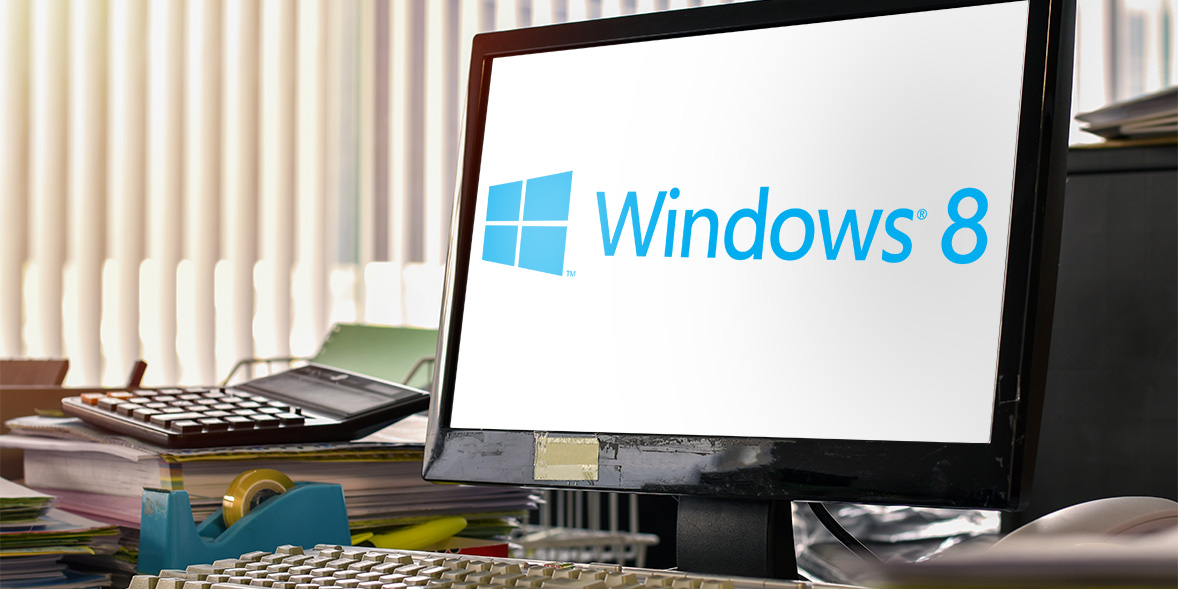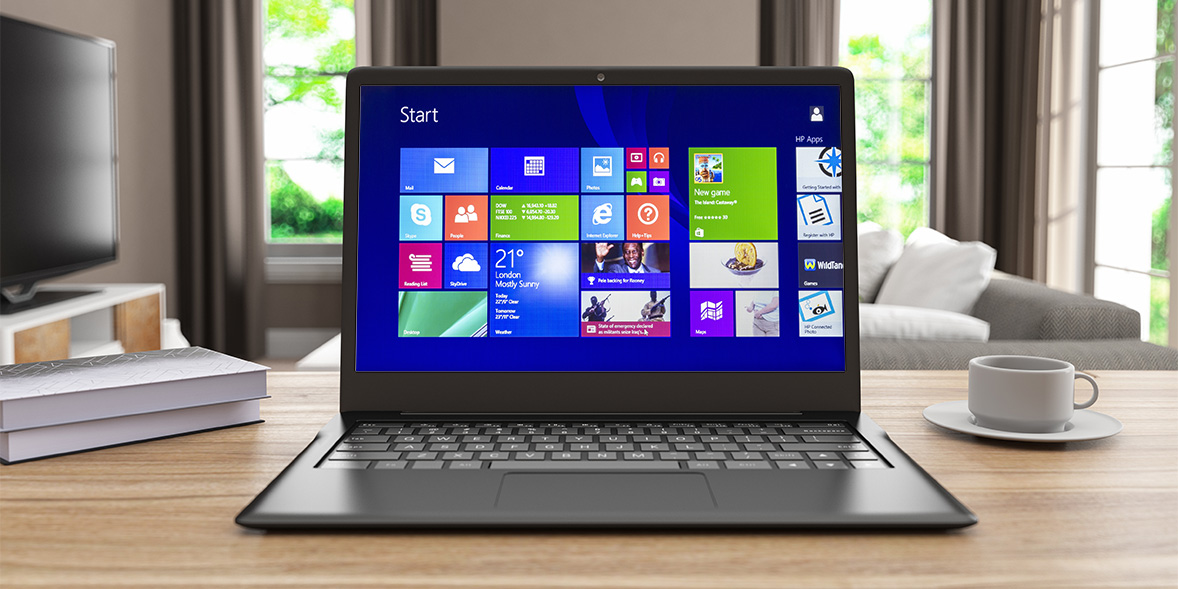
Microsoft no longer supports Windows 7 and 8 and will stop supporting Windows 8.1 on 10 January 2023. If you still use any of these operating systems, take note – hackers and criminals often target unsupported software.
When a software product reaches its end-of-life, its manufacturer stops actively looking after it. This is normal and, when it comes to Windows, this usually occurs after the product has been available for around 10 years.
Using unsupported software means you won’t receive any further security updates of fixes for vulnerabilities that are discovered. This effectively makes it unsafe to use, as any flaws that do crop up will remain unpatched.
Unsupported software quickly becomes a target for hackers and criminals looking to find ways to exploit weaknesses and steal data. Operating systems such as Windows are considered particularly vulnerable in this regard, as lots of people use them and they’re often permanently connected to the internet.
So it's a good idea to talk to family and friends, too, to see which version of Windows they're running.
Join Which? Tech Support - stay on top of your tech and get unlimited expert 1-2-1 support by phone, email, remote fix and in print
What to do if you use Windows 7, Windows 8 or Windows 8.1

If your PC is currently running Windows 7, 8 or 8.1, you need to take action.
In theory, you have two options. You can either upgrade your current PC by installing a newer operating system on it, or you can buy a new computer with a supported operating system preinstalled.
In practice, however, your choice might be limited by the age and specification of your current computer. If it’s not powerful enough for the newer OS, it won’t work properly.
If you’re not sure which version of Windows you have, click the Start Menu button on the bottom-left of your screen, or press the Windows button on your keyboard. Type system, then click either the System or System Information icon. In the window that opens, you’ll see your Windows version listed at the top.
In the same window, you’ll also be able to view some useful hardware specifications, including your PC’s processor and installed memory (Ram). This will be handy when establishing whether you can upgrade your OS on your current PC.
Thinking of buying a new computer? See what’s better value for money in our guide to laptops v desktops
Is it worth upgrading to Windows 11?
Windows 11 was released in October 2021 and is likely to be supported until early 2032 (although Microsoft has yet to announce an official end-of-life date). Unfortunately, users of Windows 7 and 8 don’t qualify for a free upgrade – that’s for Windows 10 users only.
Microsoft has also imposed some strict hardware requirements and it’s highly unlikely that Windows 7 and 8-era computers will meet them.
The big sticking point for most would-be upgraders is Windows 11’s requirement for a security chip called TPM 2.0, which is rarely found on computers more than about four years old.
You can check your PC’s compatibility with our free Windows 11 requirements checker.
Want to know which laptops we recommend? See our expert, independent pick of the best laptops
Can I still upgrade to Windows 10?
Most Windows 7 and 8-era PCs should meet Windows 10’s less-stringent requirements (1GHz or faster processor, 1GB of Ram, 32GB hard drive space). And, although it has already been superseded by Windows 11, Microsoft has pledged to continue supporting Windows 10 until 14 October 2025.
However, while Windows 10 was originally offered as a free upgrade to Windows 7 and 8 users, you’ll now need to pay for it – officially, at least.
Unofficially, it’s sometimes still possible to upgrade to Windows 10 for free, but we don’t recommend this as it doesn’t always work and you could end up damaging your PC.
You will pay £120 to buy Windows 10 Home from Microsoft’s online store; or £220 to buy Windows 10 Pro from the Microsoft store. It’s possible to get Windows 10 cheaper if you shop around, although there are lots of dodgy copies of the OS for sale online - so make sure you only buy from trusted sources.
Should I buy a new PC instead?

It might seem galling to have to fork out for a new PC, particularly if your current model is working fine. But it would be an investment. Provided you shop carefully, you can get a faster, better model that will last you for years to come.
That’s potentially better value, compared with the three years of support you’d get by paying to upgrade your current PC to Windows 10.
It's also worth checking to see whether a Windows PC is the best option for your needs and budget. See our expert guide to Chromebook vs Macbook Vs Windows.
If you are considering a Chromebook, there are plenty of good laptop deals to be had. But you need to be careful - our recent investigation discovered dozens of security-risk laptops available to buy from online retailers.
Don't get caught out. You can use our free security support filter in our laptop reviews to find a model that will last you for years to come.
Can I install an alternative operating system?
One way to keep using an old computer safely is to replace its out-of-date version of Windows with a free alternative OS. This is a great way to breathe new life into an old machine.
Not only will you save money on buying a new model, but it's more sustainable, too. As you're making the most of the resources used to build your old computer.
Subscribers to Which? Tech Support will already know how to install Ubuntu, as our step-by-step guide in Which? Computing magazine has shown them how to do this.
3 top tech tips
1 Remember that upgrading an operating system is a major procedure and you’ll need to back up everything on your PC before you begin.
Find out how to back up important files on your PC
2 You may not need to pay for a new, expensive, powerful PC. You could make your money go further by buying a refurbished model.
Learn more about how to buy a refurbished laptop
3 If you upgrade, recycle your old laptop after you’ve transferred all your data and securely erased it.
Read what you need to do when you recycle your laptop
Join Which? Tech Support
Which? Tech Support can help you keep you on top of your home tech. Our experts explain things clearly so that you can resolve issues and feel more confident using your devices.
Get unlimited 1-2-1 expert support:
- By phone – clear guidance in choosing, setting up, using and resolving issues with your home tech devices.
- By email – outline the issue and we’ll email you back with our answer.
- By remote fix – we connect securely from our office to your home computer and resolve issues while you watch.
- In print – Which? Computing magazine, six issues a year delivered to your door.
You can join Which? Tech Support for £4.99 a month. You can cancel at any time.
Information originally published in Which? Computing magazine December 2022. Additional reporting by Natalie Turner.
source https://www.which.co.uk/news/article/why-you-need-to-stop-using-windows-7-and-8-now-aDYMM8F64nYx
